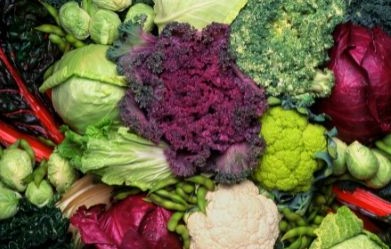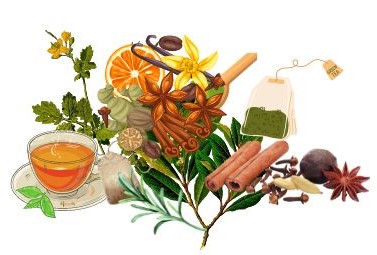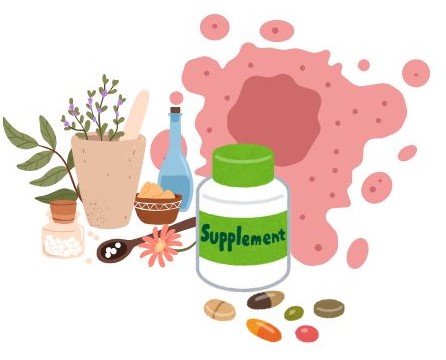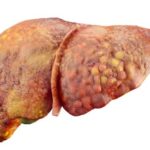Breast cancer remains one of the most common forms of cancer affecting women worldwide. While genetics play a significant role in a person’s risk of developing the disease, lifestyle factors—including diet—are also crucial in managing risk. Recent research suggests that certain foods can help lower the risk of breast cancer. This article explores various food categories such as leafy greens, fruits, nuts, legumes, whole grains, and more, along with the scientific evidence supporting their benefits.
Leafy Green Vegetables
Leafy green vegetables like spinach, kale, and Swiss chard are packed with vitamins, minerals, and phytochemicals. They are high in fiber, which can help maintain a healthy weight—a key factor in breast cancer prevention.
- . Vitamins: Rich in vitamins A, B, C, and K.
- . Minerals: Provide essential minerals such as calcium and magnesium.
- . Phytochemicals: Contain lutein and zeaxanthin, known for their anti-inflammatory properties.
Scientific Evidence
Eight studies on 7,011 women indicated that those with greater levels of carotenoids had a much lower risk of breast cancer than those with lower levels.
Similarly, a big 2015 study found that higher blood levels of total carotenoids were associated with an 18-28% lower risk of breast cancer, as well as a lower chance of recurrence and mortality in individuals who already had the disease. This research tracked 32,826 women for 20 years.
Berries

Berries such as blueberries, strawberries, and raspberries are particularly noteworthy.
Scientific Evidence
An earlier 2013 research of 75,929 women found that women who consume more berries have a lower risk of breast cancer. The anthocyanins in berries have been shown to have anti-inflammatory and antioxidant effects, which may contribute to their protective properties.
Citrus Fruits
Citrus fruits like oranges, lemons, and grapefruits are high in vitamin C and flavonoids.
Scientific Evidence
A meta-analysis in Nutrition and Cancer indicated that higher consumption of citrus fruits was linked to a lower risk of breast cancer. The flavonoids found in these fruits may inhibit cancer cell proliferation and induce apoptosis.
Walnuts
Walnuts are a nutrient-dense food rich in omega-3 fatty acids, antioxidants, and phytosterols.
- Omega-3 Fatty Acids: Important for reducing inflammation.
- Antioxidants: Help combat oxidative stress.
Scientific Evidence
A study involving 201 people, demonstrated that a diet supplemented with walnuts reduced the risk of 2-3 times to get breast cancer for those who ingested the most walnuts, peanuts, and almonds per week than those who did not eat any nuts.
Beans
Beans are an excellent source of plant-based protein, fiber, and numerous vitamins and minerals. They include varieties like black beans, kidney beans, and chickpeas.
- High in Fiber: Supports digestive health and weight management.
- Rich in Protein: Provides a plant-based protein alternative.
Scientific Evidence
A research in 2018 of 4,706 women indicated that high bean consumption lowered breast cancer risk by up to 20% compared to low bean intake. The fiber and phytonutrients in beans are believed to play a role in reducing estrogen levels, thereby potentially lowering the risk of hormone-related cancers.
Allium Vegetables
Allium vegetables, such as garlic, onions, and leeks, are known for their unique compounds that offer health benefits.
- Allicin: An antioxidant compound found in garlic that may have anti-cancer properties.
- Flavonoids: Present in onions, which can help reduce inflammation.
Scientific Evidence
A study found that women who consumed higher amounts of garlic and onions had a significantly reduced risk of developing breast cancer. The sulfur compounds in these vegetables have been shown to inhibit cancer cell growth.
Whole Grains
Whole grains such as brown rice, quinoa, barley, and oats are rich in fiber and essential nutrients.
- High Fiber: Aids in digestion and helps maintain healthy weight.
- B Vitamins: Important for energy metabolism.
Scientific Evidence
A study in 2016 indicating that women who consume whole grains have a lower risk of breast cancer compared to those who primarily consume refined grains. The fiber content in whole grains helps regulate insulin levels and may reduce the risk of breast cancer.
Cruciferous Vegetables

Cruciferous vegetables, including broccoli, cauliflower, kale, and Brussels sprouts, are rich in glucosinolates, which have been studied for their cancer-preventive properties.
- Vitamins C and K: Essential for immune function and blood health.
- Fiber: Supports digestive health.
Scientific Evidence
A study highlighted that a higher intake of cruciferous vegetables is associated with a reduced risk of breast cancer. The breakdown products of glucosinolates can enhance detoxification processes in the body.
Fermented Foods
Fermented foods like yogurt, kefir, kimchi, and sauerkraut are rich in probiotics and may support gut health.
- Probiotics: Promote a healthy gut microbiome.
- Vitamins: Often enriched with B vitamins and vitamin K.
Scientific Evidence
A Research in 2017 suggests that fermented dairy products are associated with a lower risk of breast cancer. The beneficial bacteria in fermented foods may help modulate estrogen metabolism.
Fatty Fish
Fatty wild fish, including salmon, mackerel, tuna, and sardines, are rich in omega-3 fatty acids, which are essential for heart and brain health.
- DHA and EPA: Essential fatty acids known for their anti-inflammatory properties.
- Vitamin D: Important for immune function.
Scientific Evidence
A study in Nutrition and Breast Cancer reported that women who consumed fatty fish had a lower risk of breast cancer. Omega-3 fatty acids are thought to reduce inflammation and may inhibit cancer cell growth.
Herbs and Spices

Herbs and spices such as turmeric, ginger, and green tea are rich in antioxidants and have anti-inflammatory properties.
- Antioxidants: Help combat oxidative stress.
- Anti-inflammatory Properties: Reduce chronic inflammation associated with cancer development.
Scientific Evidence
Turmeric, particularly its active compound curcumin, has been extensively studied for its anti-cancer properties. Published review of Curcumin and Its Derivatives as Anticancer Agents found that curcumin may inhibit the growth of breast cancer cells by inducing apoptosis and blocking cell cycle progression.
Our advice
Adopting a diet rich in fruits, vegetables, whole grains, nuts, legumes, and healthy fats can contribute to lowering the risk of breast cancer. While no single food can guarantee prevention, a balanced and diverse diet combined with regular physical activity and healthy lifestyle choices can significantly reduce risk factors associated with breast cancer.
Incorporating these foods into your daily meals can be both delicious and healthful. The scientific evidence supporting these foods highlights the importance of a nutrient-rich diet in the fight against breast cancer. Always consult healthcare providers for personalized dietary recommendations, especially for those with a family history of breast cancer or other risk factors.







